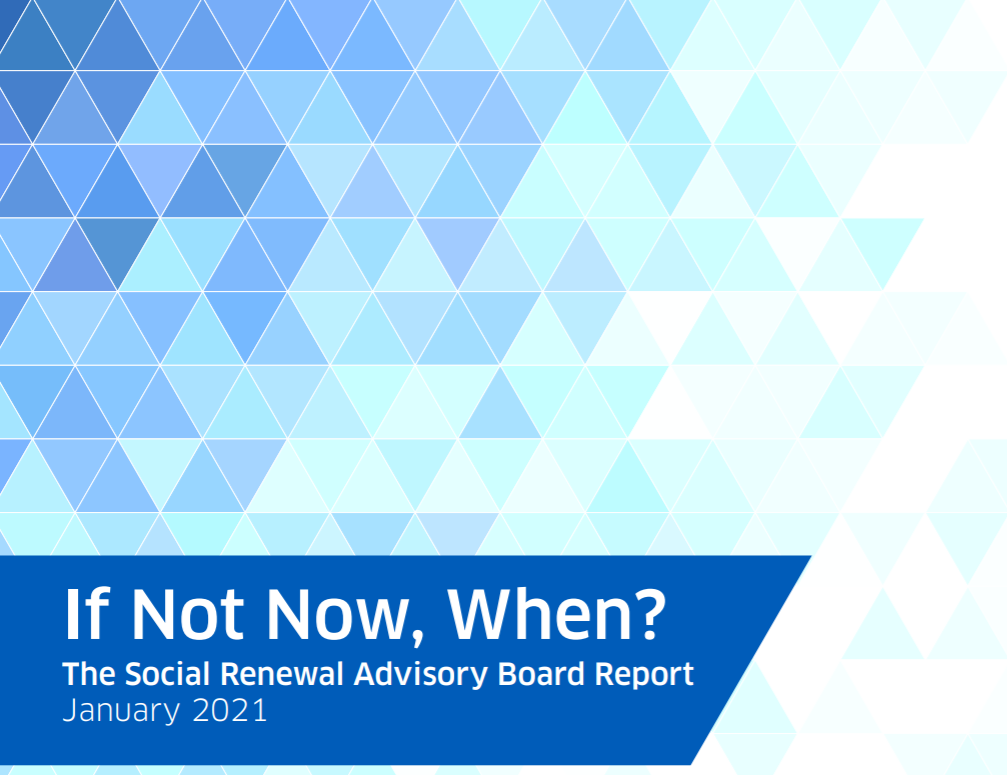If not now, when?
Last updated: 25/01/2021
The Social Renewal Advisory Board was set up by Scottish Ministers to make proposals that can renew Scotland once we start to emerge from the pandemic. One Parent Families Scotland director Satwat Rehman was among the members of the board.

The final report ‘If not now, when?’, sets a course towards this future.
The report is focused on three key principles:
- Money and Work – We believe that everyone should have a basic level of income from employment and social security.
- People, Rights and Advancing Equality – We believe that everyone should see their rights realised and have access to a range of basic rights, goods and services.
- Communities and Collective Endeavour – We believe that we need to work together to deliver a fairer society and we need to give more power to people and communities and empower frontline teams.
20 Calls to Action are set out in the report, which, if implemented in full, have the power to transform Scotland, focusing on the people most affected who have experienced the worst impacts of the pandemic.
Download If not now, when? - Social Renewal Advisory Board report: January 2021